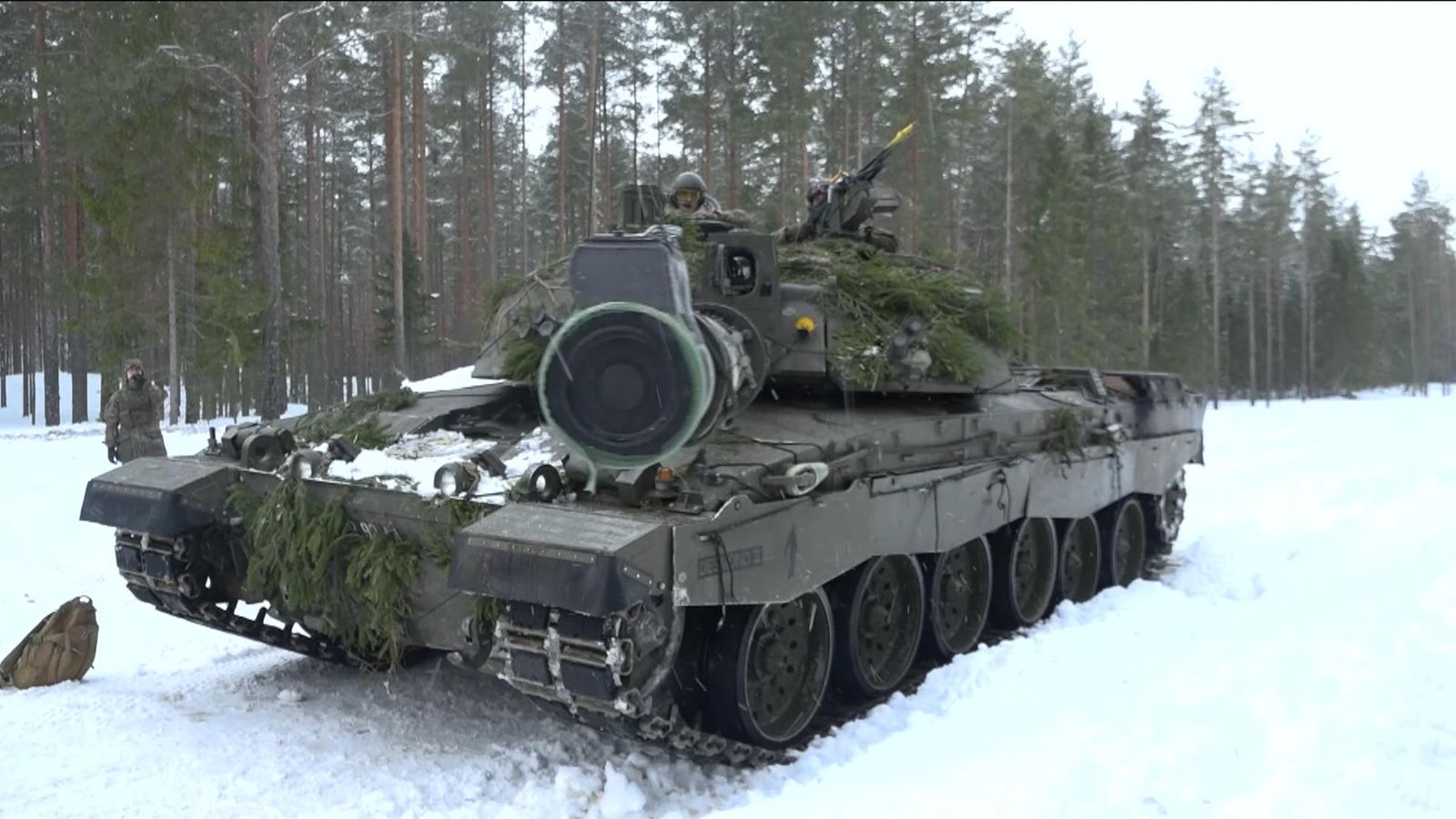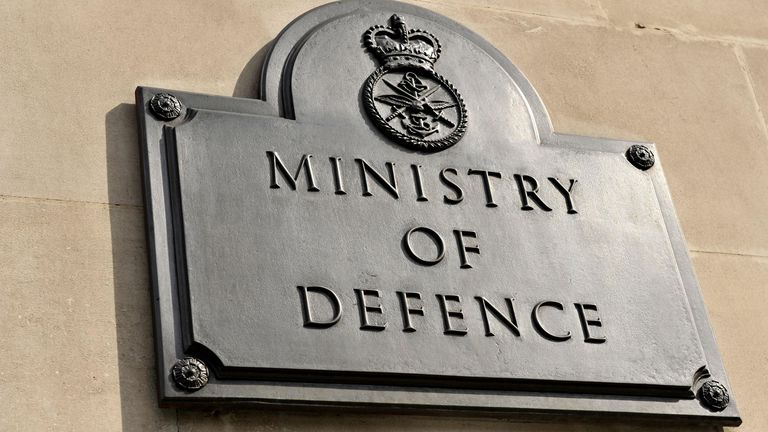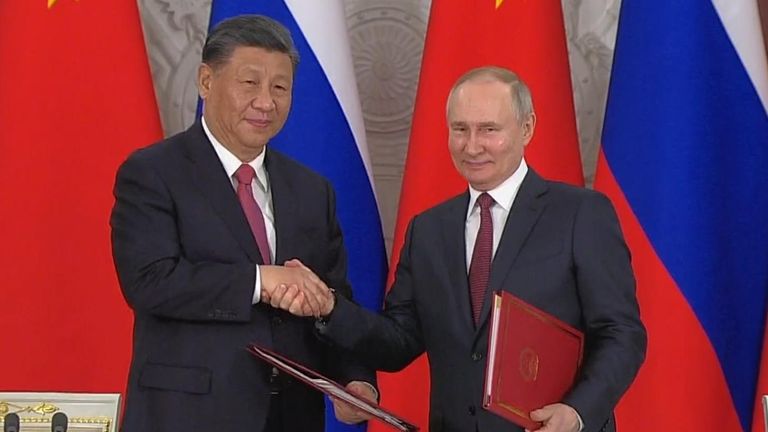The UK has accused Russian President Vladimir Putin of deliberately spreading false information about a British decision to send tank shells that contain depleted uranium to Ukraine.
The Ministry of Defence (MoD) said such material is “standard” for rounds that have the ability to pierce through armour and that they have nothing to do with nuclear weapons.
The highly unusual statement was issued on Monday night after Mr Putin condemned the plan to send such shells to Ukraine – talking about a “nuclear component” – and warned he would retaliate.
“If all this happens, Russia will have to respond accordingly, given that the West collectively is already beginning to use weapons with a nuclear component,” the president said, speaking while hosting his Chinese counterpart President Xi Jinping for a summit in Moscow.
Russia, a nuclear power, has repeatedly used nuclear sabre rattling in an attempt to deter Western support to Ukraine.
Defence minister Sergei Shoigu claimed the British decision on shells left fewer and fewer steps before a potential “nuclear collision” between Russia and the West.
“Another step has been taken, and there are fewer and fewer left,” he told reporters in remarks cited by domestic agencies.
The Kremlin drew on comments made by a British defence minister in a written response to a parliamentary question.
Minister of state for defence Baroness Annabel Goldie said some of the ammunition for the Challenger 2 battle tanks that Britain is sending to Ukraine includes armour-piercing rounds which contain depleted uranium.
Such material is used in weapons because it can penetrate armour more easily due to its density and other physical properties.
An MoD spokesperson further clarified the situation in the statement that was published following the inflammatory comments by Moscow.
“Alongside our granting of a squadron of Challenger 2 main battle tanks to Ukraine we will be providing ammunition, including armour piercing rounds which contain depleted uranium. Such rounds are highly effective in defeating modern tanks and armoured vehicles,” the spokesperson said.
Read more:
Russia says it scrambled fighter jet to intercept two US bombers over Baltic Sea
What happens if Donald Trump is arrested?
“The British Army has used depleted uranium in its armour-piercing shells for decades. It is a standard component and has nothing to do with nuclear weapons or capabilities. Russia knows this but is deliberately trying to disinform.
“Independent research by scientists from groups such as the Royal Society has assessed that any impact to personal health and the environment from the use of depleted uranium munitions is likely to be low.”
Click to subscribe to Ukraine War Diaries wherever you get your podcasts
The UK does not consider depleted uranium rounds as a nuclear capability. Russia also uses depleted uranium-based ammunition.
Colonel Hamish de Bretton-Gordon, a former army officer, dismissed the Russian president’s comments as “absolutely bonkers” and “completely wrong”.
He said it was “no doubt to persuade President Xi to give him weapons and to terrify people in the West that he is planning to escalate to nuclear weapons”.
Colonel de Bretton-Gordon said that depleted uranium “cannot be used as a nuclear fuel or turned into a nuclear weapon. Putin has been using the nuclear escalation card since the beginning of the war to keep NATO out, but it has not worked”.



